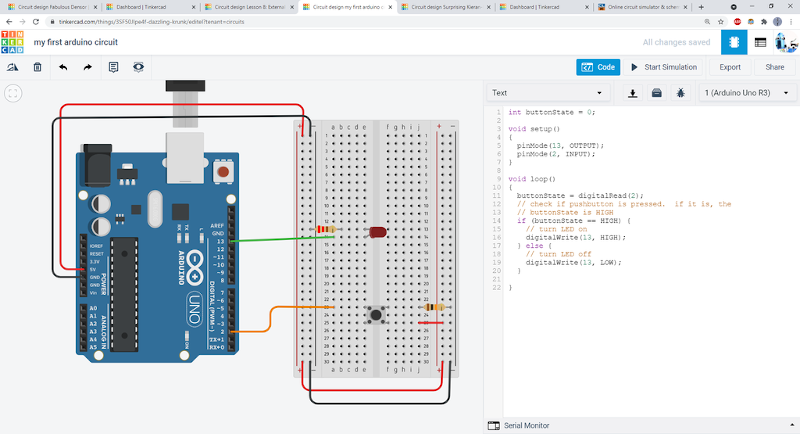With so many students attending class virtually these days, how can you give kids — or adults — some hands on experience with electronics projects? [Ben Finio] says you can by moving your lab to the virtual world using — of all things — Tinkercad. [Ben] should know something about a classroom since he is a lecturer at Cornell.
Of course, you could do this trick with any online simulator, but Tinkercad is nice because it is easy to use, looks real, and doesn’t cost the students a dime. [Ben] mentions there are some scenarios where it is especially useful like large classes or online classes. There are probably some cases where it doesn’t make sense, like teaching RF design, for example. Even then, maybe you just need a different tool.
It would be something else if Tinkercad would add some features to support this use case. Imagine an instructor being able to peek at a student’s circuit or modify it without having to screen share to the whole class. Or perhaps provide a connector to connect one student’s outputs to another student’s inputs.
We couldn’t help but think you could do some more hardcore electronics using our favorite Falstad simulator. It doesn’t have the realistic look, but it can simulate a lot of interesting circuits. After all, we’ve long been a fan of project-based learning.
















“Hacking the classroom”?
You move outside of it because your learning is outside of it. You start reading Scientific American and Carolina Scientific catalogs, or get interested in electronics. This propels you away from the children’s magazines and books, and comic books, to books and magazines magazines intended for an older audience, where you not only learn above your class level, but read about a more adult world. You start going to parts stores, which means slowly going by yourself, the world to see. Going to buy that telegraph set at the hobby shop causes you to try to get a bike path. Coming back from the parts store downtown (you’re walking because it saves bus fare, and is valuable in itself) yiu see someone set himself on fire.
And that gives you a different vantage point to view the world (which otherwise would be mostly school). So you can critique it, “hack” it.
And it gives you power to stand up to the gym teacher and refuse to play sports.
I knew more about electronics in elementary school than I’d ever learn in high school (except I kept learning by myself).
School too often puts limits on children that keep them down.
As a teacher I often find myself telling other teachers to stop expecting so little. Don’t hold students back with low expectations. Expect more and watch them deliver.
It’s a bit different now that everyone has to pass school. No child left behind means you can’t let the rest of the bunch run ahead.
Does Tinkercad generate schematics yet?